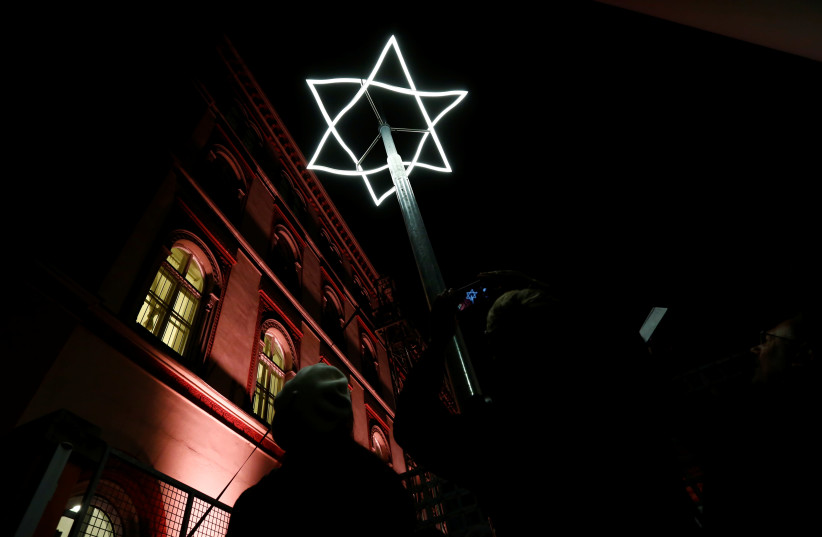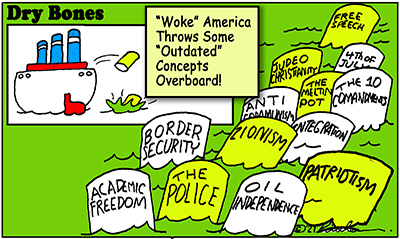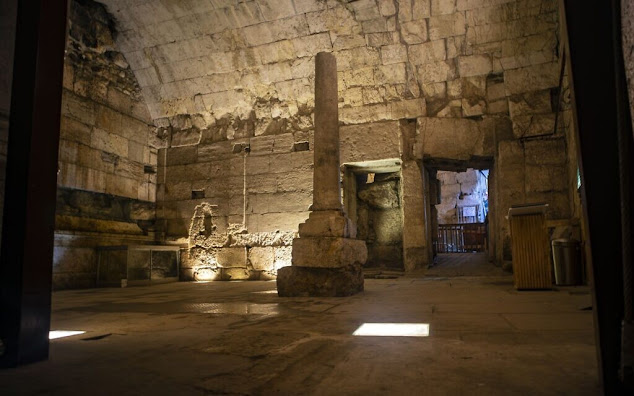Palestinian Conflict Won’t Change Arab-Israel Normalization
Normalization is here to stay, and Israel is no longer the enemy in many strategic circles across the wider Middle East. Predictions of the Abraham Accords’ demise were premature. Hamas and Iran, and a long list of right-wing parties, leftist nationalists, and populist leaders (like President Erdogan in Turkey and Prime Minister Imran Khan in Pakistan) find few buyers in the region for their anti-normalization pitch.Austria joins Durban Conference boycott
Perceptions about Israel changed between 2011 and 2020 in regional national security circles. Israel’s reputation in technology, its precision strikes in Syria, the role of its weaponry in the Nagorno-Karabakh war, and its alleged covert actions on Iran’s nuclear program have had the combined effect of forcing some policy planners in the region to see a robust Israeli role in collaborative regional security.
In interviews with two security officials in two countries neighboring Iran in January and May last year, they said that they indirectly rely on Israel to counter Iran’s influence, which they believe they cannot do alone. Officials in the region will not say this openly, but journalists have heard variations of this view from government, military, and intelligence officials in background briefings within the past five years.
But a word of caution: Israel should not stretch its luck.
While the dynamics have changed, a repeat of the Gaza conflict, renewed unrest in Jerusalem, and fresh images of Palestinian women and children scuffling with strong-looking, impressively attired Israeli soldiers will strain the luck of Israel’s many good friends in the region, empower hard-liners, and could slow new ties.
But if Israel shows its new friends that it can deftly handle the conflict with the Palestinians, then it can expect help from its new support network in the region to pressure Palestinian leaders to enact necessary reforms, focus on opportunities for young Palestinians, and shun violence. The idea that Arabs should nudge Palestinians toward moderation is another brewing trend in moderate Arab countries that has the potential to change the Arab approach toward the Palestinian issue, depending again on how Israel plays its cards.
Austria is the eight country to announce it will not participate in the Durban IV conference in New York in September, marking the 20th anniversary of the World Conference on Racism in Durban, South Africa, which was rife with antisemitism.
“Austria supports efforts to combat racism worldwide, while rejecting the misuse of the Durban process to unfairly single out and target Israel,” the Austrian Embassy in Israel said on Friday.
“Therefore, Austria abstained on the vote to hold a high-level conference in New York to commemorate the 20th anniversary of the Durban conference. There will be no participation at the political level," the embassy stated.
Dutch Foreign Minister Steph Blok told the Dutch parliament on Tuesday that "the Netherlands does not intend to participate in the Durban-IV conference.”
"This decision was taken due to the history of the Durban-process, the risk that this platform will once again be misused for anti-Semitic expressions and because of the conference’ disproportionate, one-sided focus on Israel, as exemplified in the original Durban declaration." NGOs distributed rabidly anti-Jewish and anti-Israel material at the conference in Durban, South Africa in 2001, accusing Israel of genocide and questioning whether Hitler was right. Copies of the infamous antisemitic trope Protocols of the Elders of Zion were sold.
Jewish Groups Applaud the Netherlands for Skipping Durban IV Event ‘Tarnished by Antisemitism’
Leading Jewish groups welcomed Netherland’s decision to join the UK, US, Australia, Canada, Hungary and Israel in not attending the anniversary event. The European Jewish Congress praised the Dutch government for deciding to boycott the upcoming “antisemitic” Durban conference.The Caroline Glick Show: Ep13 - Israel's latest (happy-ish) political fight PLUS Iran laughs at Biden
“We thank the Netherlands for announcing that it, like other key democracies, won’t participate in the UN’s commemoration of the 20th anniversary of the Durban conference tarnished by antisemitism,” B’nai B’rith International commented. “The UN and the fight against racism must never be used as cover for hate.”
Commenting on the Dutch pullout from the conference, the American Jewish Committee (AJC) said that “no country should attend an event tainted by a legacy of Jew-hatred.”
Kaag also pledged that the Netherlands would remain committed to combating bigotry, in the UN and beyond.
“This month, for example, the Netherlands will make a national declaration against all forms of racism and discrimination at the Human Rights Council meeting. Also at the forthcoming United Nations General Assembly, the Netherlands will focus in particular on combating racism, xenophobia, antisemitism and Islamophobia,” Kaag said.
In Episode 13 of the Caroline Glick Mideast News Hour with Gadi Taub, Caroline and Gadi discussed the fall of the government’s temporary immigration act in the early morning hours between July 5 and 6. The event exposed the anti-Zionist nature of the government and the stakes in bringing it down. Caroline and Gadi then shifted gears to discuss the Biden administration’s latest package of sanctions relief for Iran and how to look at Biden’s nuclear diplomacy in the face of Iranian dictator Khamenei’s decision to elevate Ebrahim Raisi a psychopathic mass murderer to serve as Iran’s next president beginning next month.It was all happiness and light as usual as our daring duo navigated a course in the dark world of progressive and jihadist business as usual.Watch, listen, subscribe to our channels and get the word out!









































